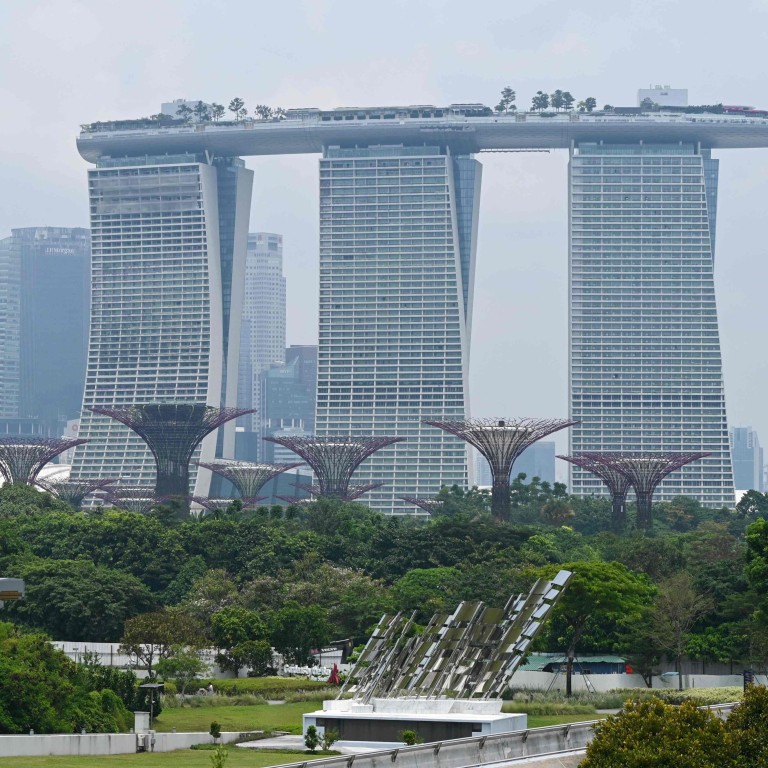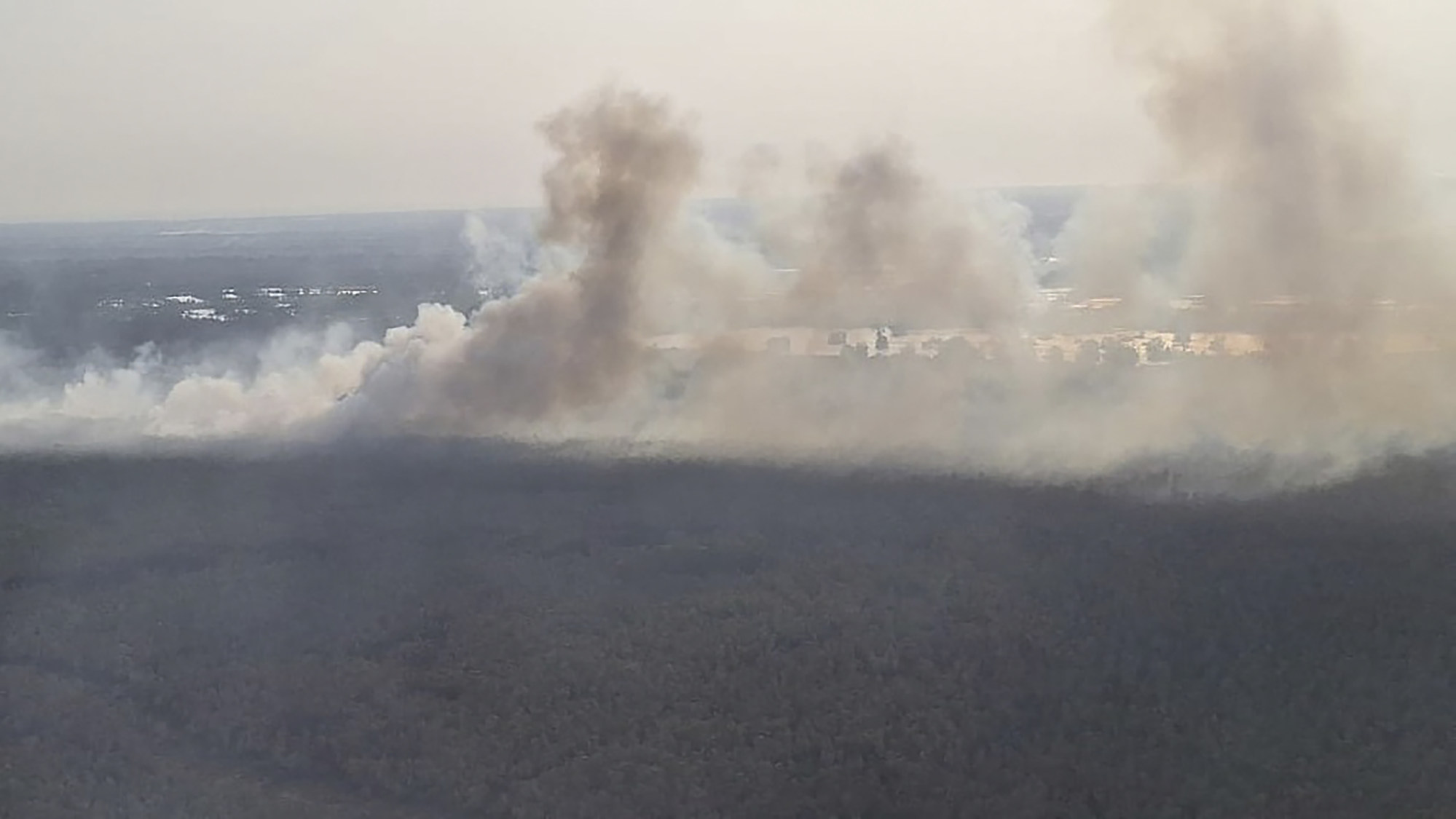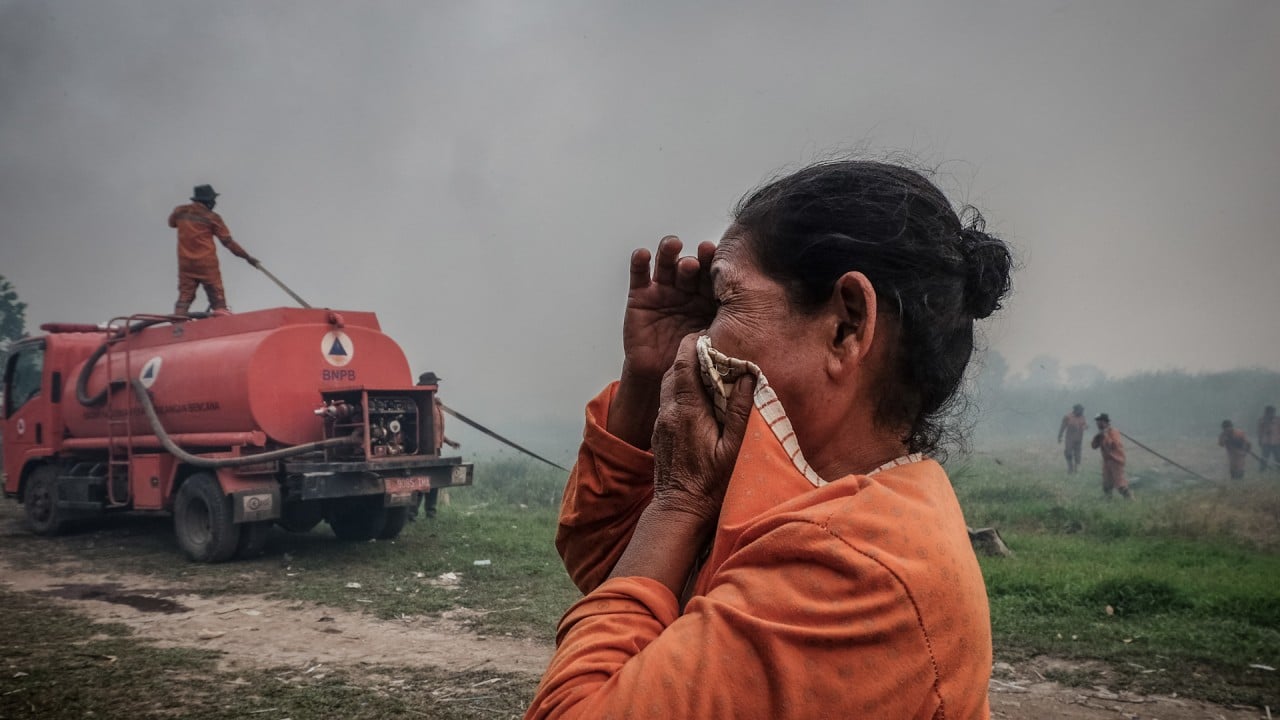
Singapore has ‘sufficient’ masks if haze worsens, health advisory issued
- Environment minister Grace Fu says the El Nino period is here and conditions are ‘drier and hotter’
- Authorities will install air purifiers in healthcare institutions and schools to mitigate the impact of the haze
There will be stepped-up haze advisories depending on the situation, including whether the public should wear masks, Fu told reporters on the sidelines of an event in her constituency.
Asked about preparations to make masks available, the minister said on Saturday: “We have been planning for that. I believe that we have sufficient stock for us. But of course, it’s always important to remember that we’re dealing with uncertain weather conditions.”
Fu added that if necessary, Singapore will acquire more masks.
Southeast Asia haze crisis sparks fresh blame game, calls to deter ‘bad apples’
According to the inter-agency haze task force, N95 masks are not required for short exposure such as commuting from home to school or work.
“In general, a healthy individual who has to be outdoors for several hours may wear an N95 mask to reduce exposure when the forecast air quality is in the hazardous range (PSI > 300),” the task force said in a media release on Saturday.
Vulnerable people can wear an N95 mask if they have to be outdoors for several hours when the 24-hour Pollutant Standards Index (PSI) is above 200.
The haze situation is uncertain because it depends on a few factors such as the number of hotspots and forest fires in the region, wind direction and whether it rains, said Fu.
“We need to be vigilant and expect this condition to be intermittent and come and go, or if it’s more serious, it may be with us for a while.”
Following a haze task force meeting on Saturday, government agencies announced measures to mitigate the impact of haze.
Clock is ticking for Asian nations to switch to renewable energy, analysts warn
That includes having air purifiers in healthcare institutions, preschools and schools.
Preschools will minimise prolonged outdoor activities when the air quality is in the unhealthy range. If schools need to be closed, national examinations will be rescheduled.
The Ministry of Manpower’s advice for workplaces is to reduce the duration of prolonged or strenuous work for healthy employees when the 24-hour PSI is in the unhealthy range.
The task force said the Singapore Armed Forces and Home Team have adjusted the level and intensity of training and outdoor activities based on air quality. Precautionary measures will be taken to ensure the health and safety of service personnel.

There will also be air-conditioned rooms on standby at all community centres and selected residents’ committee centres for members of the public who want to seek respite from the haze – should the air quality reach very unhealthy levels.
Fu encouraged the public to monitor the advisories issued by the National Environment Agency (NEA), which will send them daily during the haze period.
The first such advisory of the year was published on Saturday after air quality fell to the unhealthy range – levels not seen since 2019.
Normal activities can continue for all groups if the PSI is in the moderate range.
In the unhealthy range, healthy people should reduce prolonged or strenuous outdoor exertion. Elderly people, pregnant women and children should minimise such activities, while those with chronic lung or heart disease should avoid them.


